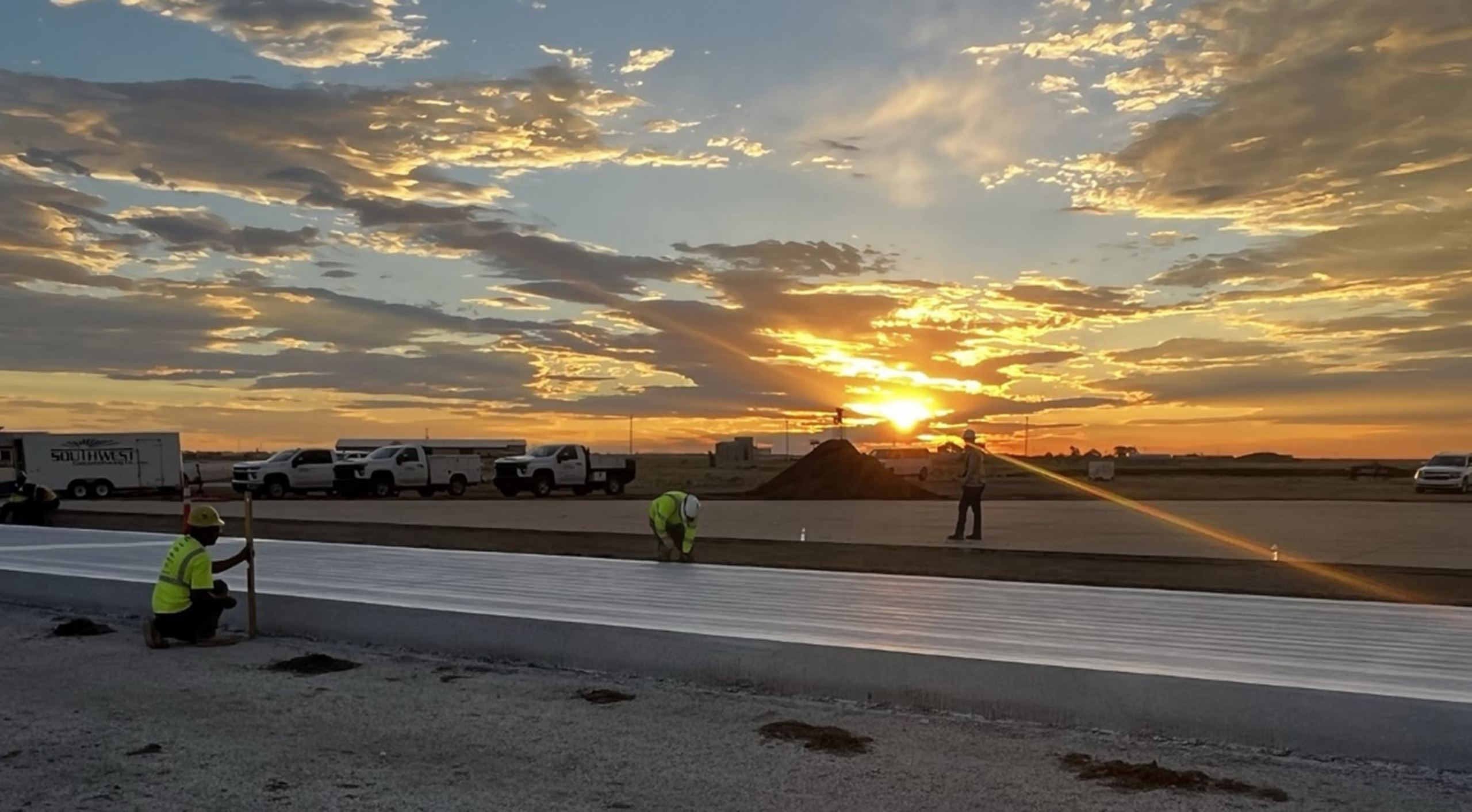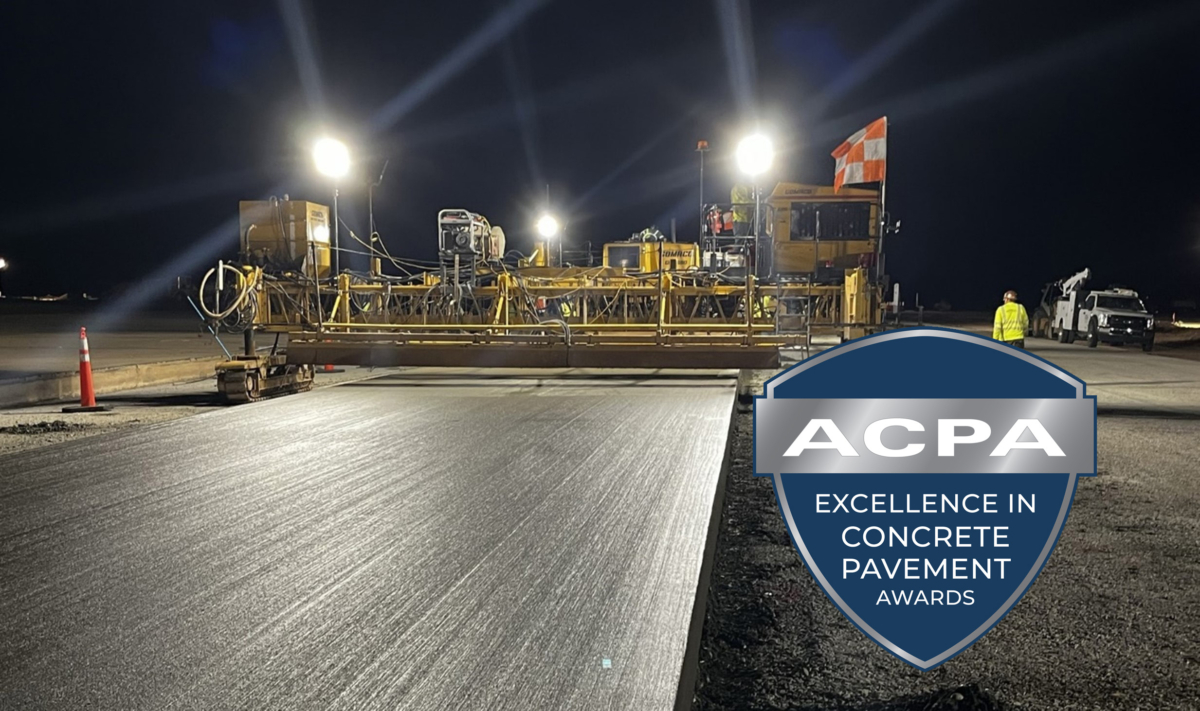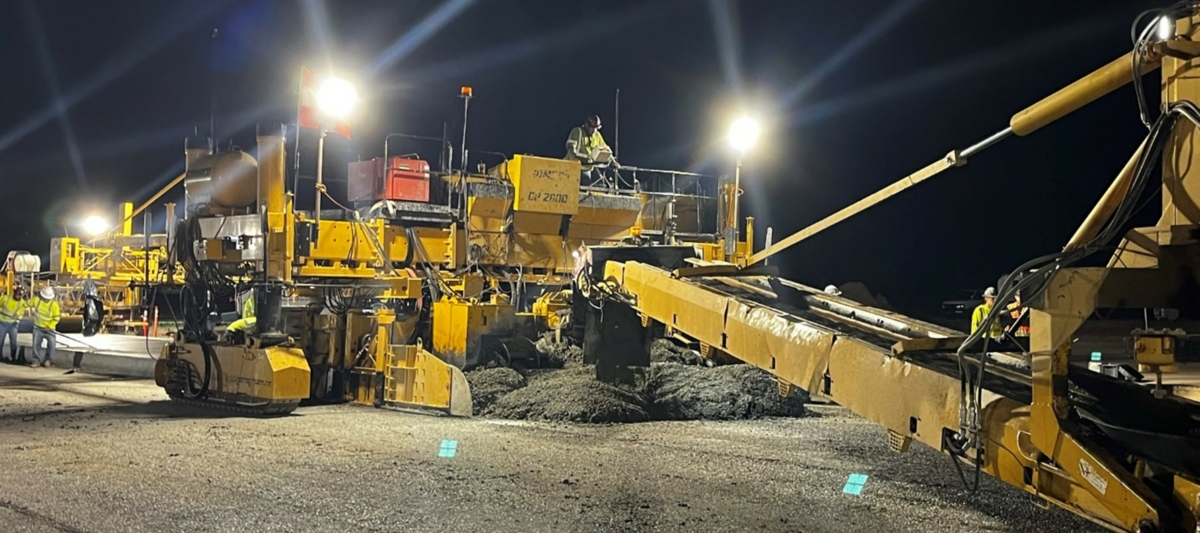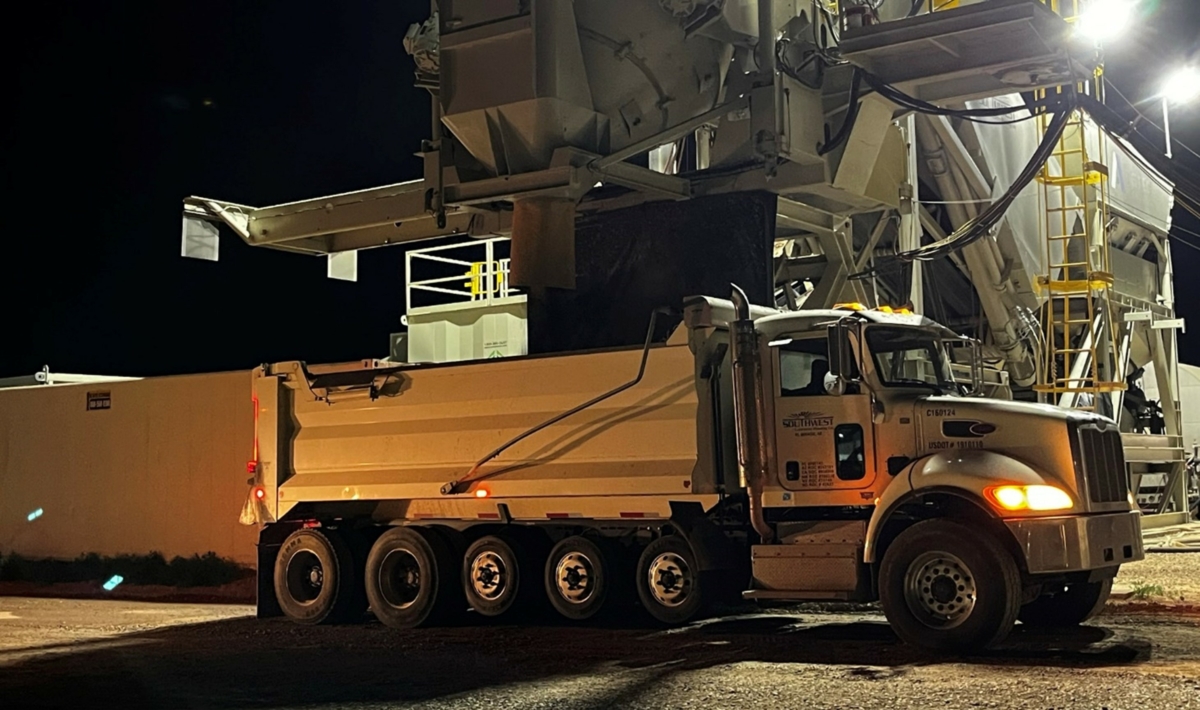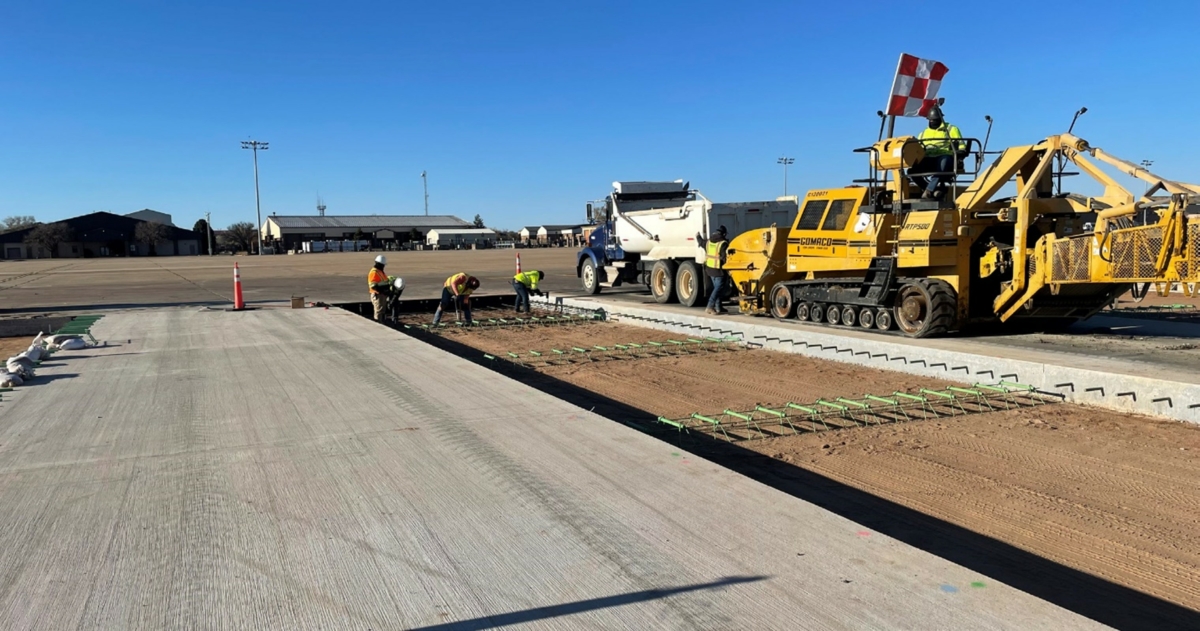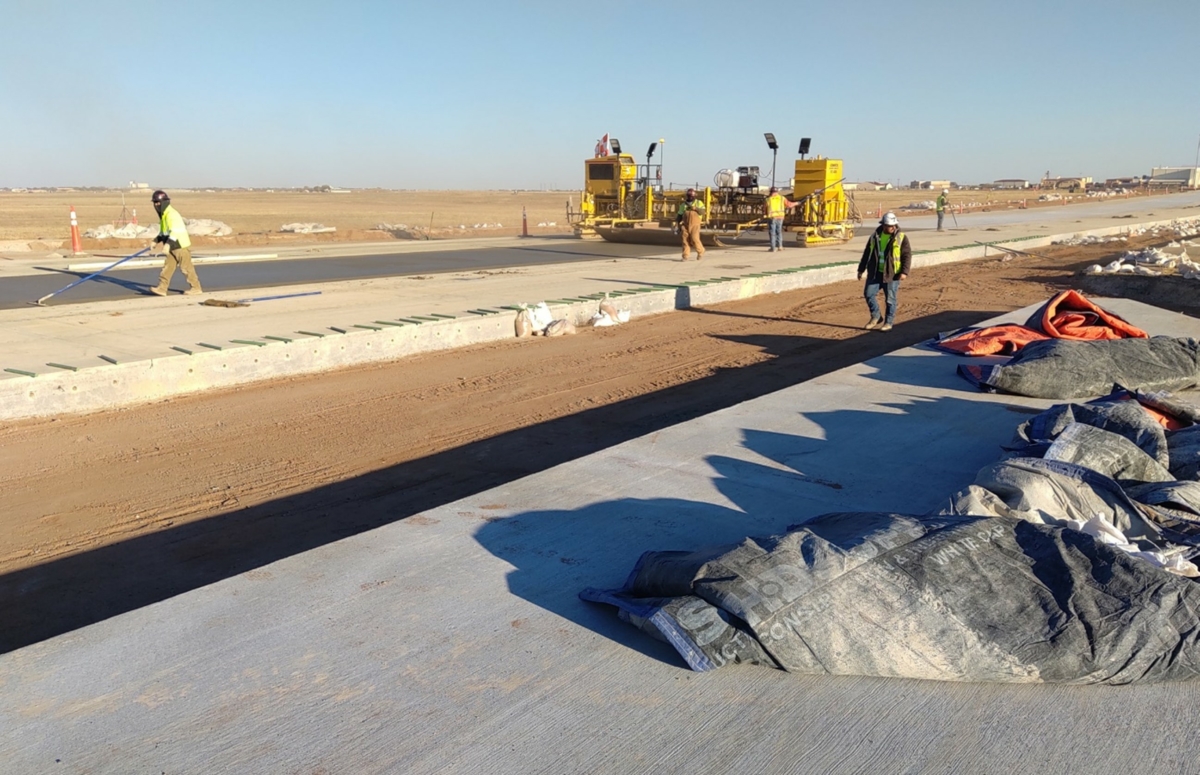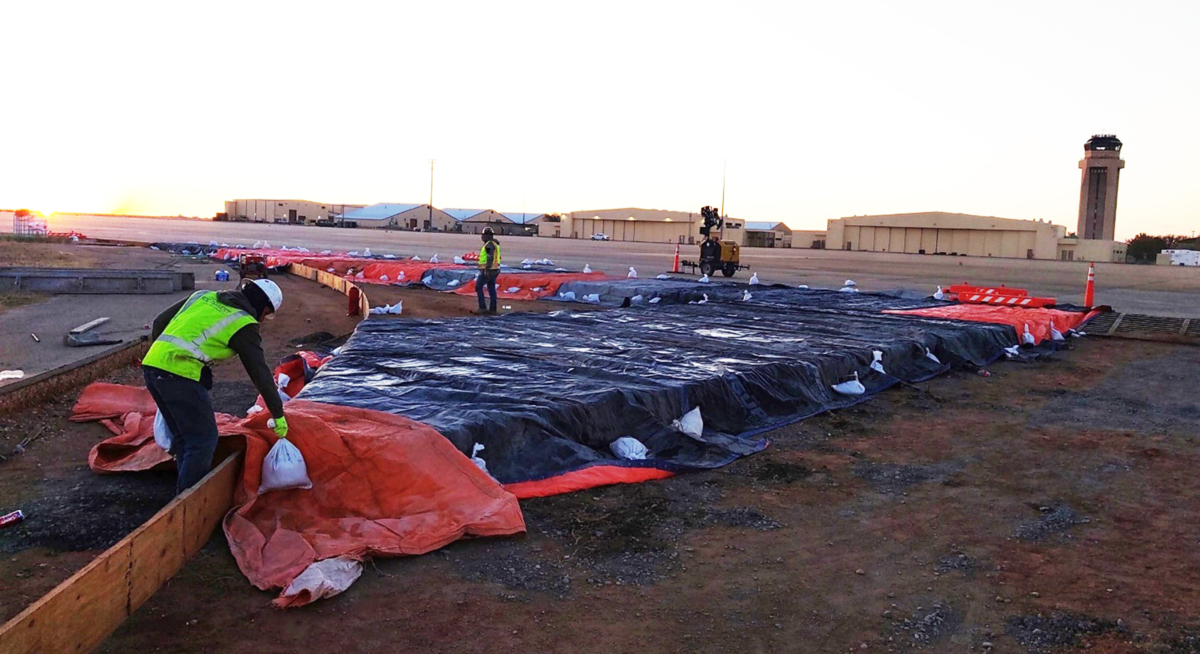The American Concrete Pavement Association (ACPA) recently announced the winners in their annual Excellence in Concrete Paving Awards and Southwest Concrete Paving Company received the top prize in the Military Airports category for their work on the Reconstruct Taxiway Mike and Taxiway Delta Project. The award will be presented at the Annual ACPA Meeting on December 14th.
The Reconstruct Taxiway Mike and Taxiway Delta Project involved the complete demolition and reconstruction of two primary feeder taxiways at Cannon Air Force Base in Clovis, New Mexico. As a single contract with two distinct construction zones, the project was built in two phases.
Taxiway Mike, an “L” shaped taxiway, services the relatively new C-130 apron, which was constructed and subsequently expanded over the past 10 years. Taxiway Mike was built in the 1980s with asphalt and was part of a much longer access pathway. With the commissioning of the new C-130 apron, Taxiway Mike’s asphalt thoroughfare section became dilapidated due to its increased loading and age.
As part of the project’s first phase, Taxiway Mike’s asphalt section was completely demolished and reconstructed. The new taxiway pavement features 14-inch Portland cement concrete pavement (PCCP), and a cement-treated drain layer with associated subdrain piping. Work also included new airfield lighting and reshaping grade contours for drainage.
The second phase of the project involved work on Taxiway Delta, which serves as a primary access taxiway between the main loading apron and runway 22/04. Also constructed initially with asphalt, Taxiway Delta exhibited significant signs of aging and distress, requiring its demolition and replacement. As with Taxiway Mike, Taxiway Delta features PCCP, but at a depth of 15 inches, on 10 inches of aggregate base course. New shoulder construction and airfield lighting circuits were also included in the second phase of the project.
Presenting a challenge during the construction of Taxiway Mike, the reconstruction of adjacent runway 31/13 was simultaneously taking place. Overlapping were lighting, grading, and drainage features for both projects, requiring an elevated level of coordination between the two construction teams.
The reconstruction of runway 31/13 meant that only a single runway was active at the airfield, one that now had a significantly increased level of traffic – and Taxiway Delta was being built right next to it. Naturally, work was affected. Placements within 200 feet of the runway needed to be tightly coordinated with airfield flight schedules.
The Reconstruct Taxiway Mike and Taxiway Delta Project was scheduled over 471 calendar days, starting in the 2022 construction season, concurrent with the full-length repair of runway 31/13. In addition to the adjacency issues, weather became a factor. Clovis is at the southern edge of Tornado Alley and an extremely precipitous spring caused additional delays in the schedule.
The crew applies texture and cure to Taxiway Delta’s fresh concrete pavement, operating under challenging cold weather conditions.
On top of those challenges, another monkey wrench was thrown into the schedule. To enable continued use of Cannon Air Force Base’s only active runway, work on Taxiway Mike had to be 100% punched before demolition was allowed to begin on Taxiway Delta.
What resulted was a construction schedule that had Taxiway Delta’s concrete pavement placement taking place in November and December, intensified by the base’s elevation at 4,295 feet. The cold, windy weather in the high desert with sub-minimum ambient temperatures required innovative measures – the use of heated water and the covering and uncovering of the freshly placed PCCP to maintain initial curing temperatures.
The forecast weather in December also made placing asphalt for the shoulders difficult to near impossible, so the SWCP Project Team presented a value engineering proposal (VEP) to change the shoulders to concrete and use the cold weather placement and curing techniques being employed on Taxiway Delta. The VEP was approved and, with a schedule extension required by all of the resultant and unforeseen challenges, the job was successfully delivered on time.


